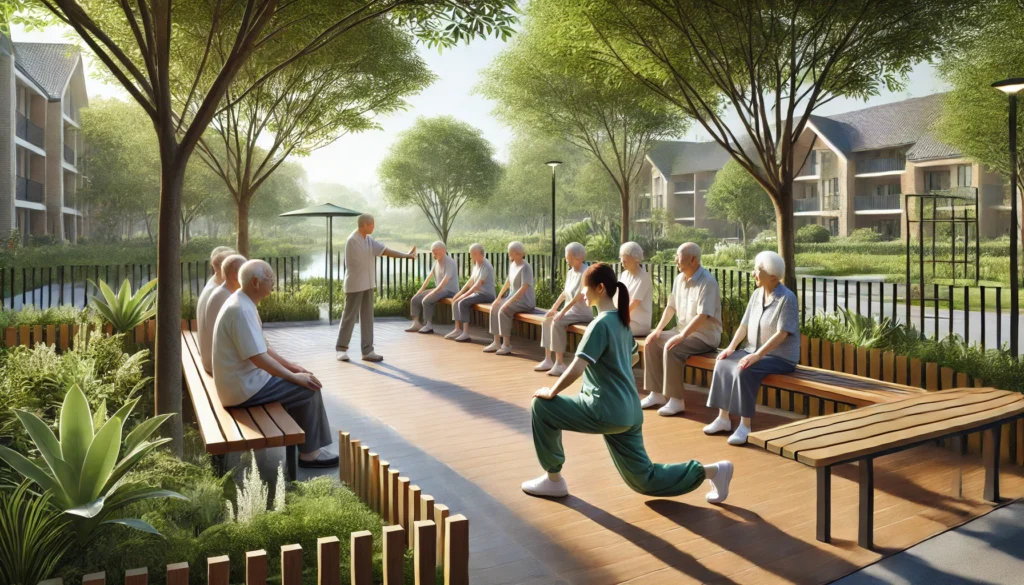Navigating the intricate terrain of memory care for loved ones is a journey that requires patience, knowledge, and compassion. Understanding the specific requirements and services offered by memory care facilities is paramount in ensuring that individuals with Alzheimer’s disease, dementia, and other memory impairments receive the care they deserve. Memory care is a specialized form of long-term care that caters to the unique needs of these individuals, demanding a comprehensive understanding of its intricacies. This article aims to provide a detailed exploration of memory care requirements, facility standards, and services to aid families in making informed decisions.
You may also like: Finding Local Specialists for Memory Loss
The Evolution of Memory Care
The field of memory care has undergone a dramatic transformation over the years. Once relegated to the periphery of elder care, it now stands as a specialized discipline offering tailored environments and programs designed to enhance the quality of life for residents.
Historical Context
In the past, individuals with memory impairments were often placed in general nursing homes, where their specific needs were not adequately addressed. This was largely due to a lack of understanding of cognitive diseases and their complexities. As medical science advanced, so did our comprehension of Alzheimer’s and dementia, prompting a shift from general elder care to the establishment of specialized memory care facilities.
The Rise of Specialized Facilities
The emergence of dedicated memory care facilities marked a pivotal shift in the approach to cognitive health. These facilities are designed with specific architectural features, such as secured areas to prevent wandering and spaces that reduce confusion. This tailored approach has proven beneficial in managing the symptoms of memory impairments, significantly improving the quality of life for residents.
Advancements in Care Methodologies
With the evolution of memory care facilities came advancements in care methodologies. Today, memory care is not just about managing symptoms; it’s about enhancing the overall well-being of residents. Facilities now employ a range of therapeutic techniques, from music therapy to sensory stimulation activities, all aimed at engaging residents in meaningful ways.
Memory Care Facility Requirements
Choosing the right memory care facility involves evaluating several key requirements that ensure quality care and safety for residents. Each aspect of a facility’s offering plays a crucial role in the overall care experience.
Staff Training and Expertise
The backbone of any reputable memory care facility is its staff. Personnel should be specifically trained in dementia care, equipped with the skills to manage the unique challenges associated with memory impairments. This includes training in communication techniques, behavior management, and emergency response. Ongoing education and training are crucial to keeping staff updated on the latest care techniques and best practices. Facilities often partner with educational institutions and healthcare organizations to ensure their staff receive the highest level of training.
Secure and Supportive Environment
Safety is a primary concern in memory care. Facilities must be designed to prevent wandering—a common behavior among individuals with dementia. Secure entrances and exits, along with carefully monitored indoor and outdoor spaces, help ensure residents’ safety. Additionally, the physical environment should be supportive, with clear signage, soothing color schemes, and familiar, home-like settings that reduce anxiety and confusion.

Person-Centered Care Plans
Each resident’s care plan should be individualized, focusing on personal history, preferences, and abilities. This approach not only enhances the quality of care but also promotes a sense of autonomy and dignity for residents. Care plans are developed in collaboration with families and healthcare professionals, ensuring they are comprehensive and adaptable to changing needs. Regular reviews and updates to care plans are essential to address the evolving nature of memory impairments.
Technological Integration
Modern memory care facilities increasingly incorporate technology to enhance care quality. This includes systems for monitoring residents’ health, digital platforms for family communication, and tools for cognitive stimulation. Technology can also aid in staff training, providing virtual reality scenarios to practice handling various situations.
Memory Care Services
Memory care facilities offer a broad range of services designed to support both residents and their families, ensuring a holistic approach to care.
Cognitive and Recreational Activities
Engagement in cognitive and recreational activities is vital for maintaining and improving residents’ quality of life. Activities should be tailored to individual abilities and interests, promoting social interaction, mental stimulation, and emotional well-being. Examples include art classes, music therapy, and group games that foster a sense of community and joy. These activities not only stimulate cognitive function but also provide a sense of purpose and belonging for residents.
Health and Wellness Support
Comprehensive health and wellness support is a cornerstone of memory care. Regular medical assessments, medication management, and coordination with healthcare providers are essential components. Nutritional support and meal planning should also be tailored to meet the dietary needs of residents. Facilities should offer exercise programs and wellness activities that encourage physical health, which is intricately linked to cognitive well-being.
Family Support and Education
Families are integral to the care process. Memory care facilities should offer resources and educational programs to help families understand the progression of memory impairments and how best to support their loved ones. This can include workshops, support groups, and access to counseling services. Educating families ensures they remain informed and involved, fostering a strong support network for both the resident and the family members.
Emotional and Spiritual Care
Recognizing the emotional and spiritual needs of residents is crucial in memory care. Facilities should offer services that address these aspects, such as pastoral care, meditation sessions, and support groups. Emotional support can significantly impact the overall well-being of residents, helping them find peace and comfort in their new environment.
Current Trends in Memory Care
The field of memory care is continuously evolving, influenced by advancements in research and technology. Staying informed about these trends is essential for families and care providers alike.
Technological Innovations
Technology is playing an increasingly important role in memory care. From wearable devices that track vital signs to virtual reality programs that stimulate cognitive function, innovative tools are enhancing care delivery and improving outcomes for residents. Facilities are also using technology to improve communication between staff and families, providing updates and feedback in real-time.
Focus on Holistic Care
There is a growing emphasis on holistic care approaches that address not only physical and cognitive needs but also emotional and spiritual well-being. This comprehensive approach recognizes the multifaceted nature of health and aims to provide balanced care. Holistic care strategies often include alternative therapies, such as aromatherapy and acupuncture, which can enhance overall wellness and quality of life.
Research-Driven Practices
As new research emerges, memory care practices are being continually refined. Facilities that incorporate the latest research findings into their care models are better equipped to provide effective and compassionate care. This includes adopting evidence-based practices and participating in clinical trials that contribute to the broader understanding of memory impairments.

Future Implications for Memory Care
As the global population ages, the demand for memory care services is expected to rise. This trend underscores the importance of ongoing research and investment in memory care infrastructure.
The Role of Research
Continued research into Alzheimer’s and dementia is crucial for developing new treatments and improving care strategies. Families should seek facilities that are aligned with the latest research findings and incorporate evidence-based practices into their care models. Supporting research initiatives not only benefits current residents but also contributes to the future of memory care.
Personalized Care Models
The future of memory care lies in more personalized care models that cater to individual needs and preferences. Advances in genetic research and personalized medicine are paving the way for care plans that are uniquely tailored to each resident’s genetic makeup and health profile. This level of personalization promises to enhance care outcomes significantly.
Integration of Emerging Technologies
The integration of cutting-edge technologies will continue to shape the future of memory care. From artificial intelligence that predicts health changes to smart home technologies that enhance safety, these innovations will play a crucial role in improving care quality and efficiency. Staying abreast of technological advancements will be key for facilities aiming to offer the highest standard of care.
Practical Advice for Families
Choosing a memory care facility is a significant decision that requires careful consideration. Here are some practical tips for families:
- Research and Visit Multiple Facilities: Take the time to visit several facilities, observe the environment, and speak with staff and residents. This firsthand experience can provide invaluable insights into the care quality and atmosphere of each facility.
- Ask About Staff Training and Turnover: Inquire about the training staff receive and the facility’s staff retention rate. High turnover can indicate underlying issues, whereas well-trained, consistent staff are often a hallmark of a quality facility.
- Evaluate Safety Measures: Ensure that the facility has appropriate safety measures in place, including secure entrances and exits. Inquire about emergency procedures and how they handle incidents of wandering or confusion.
- Consider Location and Accessibility: Choose a facility that is conveniently located for family visits and accessible to healthcare providers. Proximity can play a significant role in maintaining family connections and ensuring timely medical care.

Conclusion
Navigating memory care requirements can be challenging for families, but understanding the key elements of quality care is essential for making informed decisions. By prioritizing staff expertise, personalized care, and comprehensive services, families can ensure their loved ones receive the best possible care in a supportive environment. As memory care continues to evolve, staying informed about current trends and future implications will empower families to advocate effectively for their loved ones’ needs. The journey may be complex, but with the right knowledge and resources, families can make choices that honor and support their loved ones’ dignity and well-being.
Further Reading:
Meeting Memory Care Requirements: How to Ensure Quality Care
A Guide To Memory Care Laws And Regulations In North Carolina
Important Note: The information contained in this article is for general informational purposes only, and should not be construed as health or medical advice, nor is it intended to diagnose, prevent, treat, or cure any disease or health condition. Before embarking on any diet, fitness regimen, or program of nutritional supplementation, it is advisable to consult your healthcare professional in order to determine its safety and probable efficacy in terms of your individual state of health.
Regarding Nutritional Supplements Or Other Non-Prescription Health Products: If any nutritional supplements or other non-prescription health products are mentioned in the foregoing article, any claims or statements made about them have not been evaluated by the U.S. Food and Drug Administration, and such nutritional supplements or other health products are not intended to diagnose, treat, cure, or prevent any disease.


